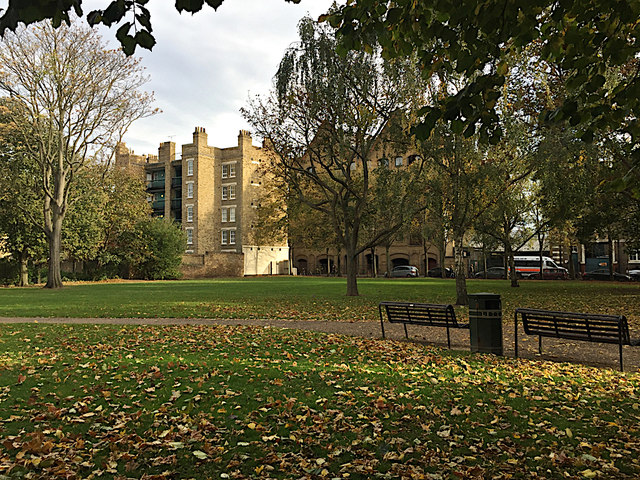There are two gardens in Wapping in London's East End which were not there when I was a boy before WW2.
The Rose Garden is alongside Vancouver House on Green Bank. Before the war it was a derelict yard full of rubble and surrounded by a brick wall and cast iron gates. The security of course was not sufficient to deter small boys who regarded brick walls and gates as a challenge rather than a deterrent. Even the warnings of our parents about the enormous rats which were supposed to inhabit the rubble kept us out. A clip round the ear from a parent rarely materialised as we were safe out
before father came home from work.
Of course there was the playground just across the road but swings and the roundabout and so on supervised by a dragon playground lady were no competition in terms of adventure.
The Waterside gardens on Wapping High Street are opposite the end of what is now called Reardon's Path but which used to be Dundee Street. This area was open storage for the huge rolls of newsprint which used to be offloaded there before being carted up to Fleet Street where most of the national daily newspapers were printed.
The Rose Garden is alongside Vancouver House on Green Bank. Before the war it was a derelict yard full of rubble and surrounded by a brick wall and cast iron gates. The security of course was not sufficient to deter small boys who regarded brick walls and gates as a challenge rather than a deterrent. Even the warnings of our parents about the enormous rats which were supposed to inhabit the rubble kept us out. A clip round the ear from a parent rarely materialised as we were safe out
before father came home from work.

Of course there was the playground just across the road but swings and the roundabout and so on supervised by a dragon playground lady were no competition in terms of adventure.
The Waterside gardens on Wapping High Street are opposite the end of what is now called Reardon's Path but which used to be Dundee Street. This area was open storage for the huge rolls of newsprint which used to be offloaded there before being carted up to Fleet Street where most of the national daily newspapers were printed.











